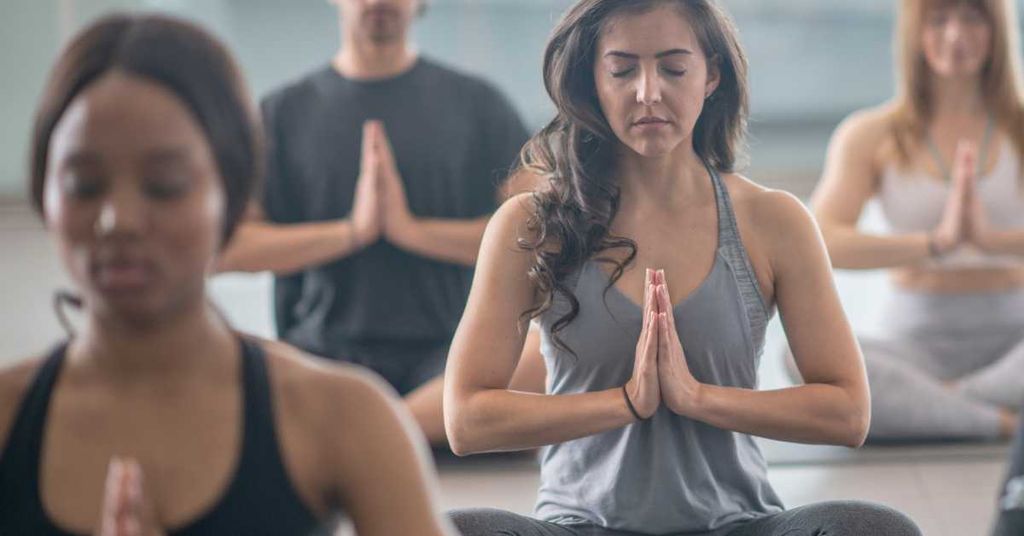The Mental Health Benefits of Yoga and Its Growing Popularity
Yoga, an ancient practice with roots in India, has evolved into a global phenomenon, captivating millions of people across different cultures and demographics. Known for its holistic approach to well-being, yoga seamlessly integrates physical, mental, and emotional health, making it a versatile practice suitable for anyone seeking balance in life. This article delves deep into the mental health benefits of yoga and explores why it has become an indispensable part of modern wellness trends.
The Mental Health Benefits of Yoga

Yoga is much more than a form of physical exercise; it’s a comprehensive practice that encompasses mental clarity, emotional resilience, and inner peace. Let’s break down its profound effects on mental health.
1. Stress Reduction
Stress is an inevitable part of modern life, but chronic stress can have devastating effects on mental health. Yoga helps mitigate stress through techniques such as controlled breathing (pranayama), meditation, and mindful movement. By stimulating the parasympathetic nervous system, yoga reduces cortisol levels and fosters relaxation.
How Yoga Reduces Stress:
- Deep Breathing: Practices like alternate nostril breathing and diaphragmatic breathing calm the nervous system.
- Meditative Practices: Focused meditation in yoga encourages mindfulness, helping individuals stay present and alleviate stress.
- Physical Movement: Gentle stretches and poses release physical tension, further reducing mental stress.
Studies have shown that regular yoga practice significantly lowers stress markers, making it an effective tool for stress management.
2. Anxiety Relief
Anxiety disorders affect millions of people worldwide, causing excessive worry and fear. Yoga offers a sanctuary for individuals grappling with anxiety by fostering mindfulness and grounding techniques.
Yoga Techniques for Anxiety Relief:
- Yoga Nidra: A form of guided relaxation that promotes a state of conscious sleep, reducing anxiety.
- Restorative Yoga: Gentle, supportive poses encourage deep relaxation.
- Mindfulness Training: Being present in the moment can help diminish anxious thoughts.
Yoga has been proven to reduce symptoms of generalized anxiety disorder (GAD), social anxiety, and panic attacks by creating a mental state of calm and centeredness.
3. Improved Mood and Emotional Stability
Mood disorders, including depression and bipolar disorder, often stem from chemical imbalances and environmental stressors. Yoga has shown promise in improving mood by stimulating the release of endorphins, dopamine, and serotonin—the body’s natural mood enhancers.
Key Practices for Enhancing Mood:
- Sun Salutations: Dynamic sequences that energize the body and mind.
- Inversions: Poses like shoulder stands increase blood flow to the brain, promoting mental clarity and positive emotions.
- Meditation: Enhances self-awareness, fostering acceptance and emotional balance.
Research highlights that yoga’s impact on mood is comparable to traditional forms of therapy, making it a valuable adjunct treatment for depression.
4. Better Sleep Quality
Sleep is vital for mental health, yet many struggle with insomnia or poor sleep patterns. Yoga’s calming effects extend to improving sleep quality by reducing the physiological arousal that hinders rest.
Yoga Practices for Better Sleep:
- Yin Yoga: A slow-paced style that focuses on deep stretching and relaxation.
- Yoga Nidra: Prepares the body and mind for restful sleep.
- Bedtime Routines: Gentle stretches and breathing exercises signal the brain to wind down.
Regular yoga practitioners report fewer instances of insomnia and more restful, restorative sleep.
5. Enhanced Focus and Mental Clarity
Yoga trains the mind to stay present, sharpening focus and improving cognitive function. Techniques like pranayama and drishti (focused gaze) teach practitioners how to concentrate, leading to better productivity and problem-solving skills.
Cognitive Benefits of Yoga:
- Increased gray matter density in brain regions associated with memory and attention.
- Improved executive functioning, including decision-making and planning.
- Reduction in mental fatigue and brain fog.
6. Emotional Resilience and Self-Esteem
Yoga cultivates emotional intelligence by encouraging practitioners to process and accept their emotions. This increased awareness helps build emotional resilience, allowing individuals to cope with challenges more effectively.
Practices That Build Emotional Resilience:
- Gratitude Meditation: Shifts focus from negativity to positivity.
- Compassion Practices: Poses like child’s pose foster feelings of self-compassion and empathy.
- Mantras: Repeating affirmations or chants can reinforce self-worth.
People who regularly practice yoga report higher self-esteem, reduced feelings of isolation, and a stronger sense of purpose.
The Growing Popularity of Yoga

The global rise of yoga is a testament to its versatility and effectiveness. Here’s why this ancient practice has captured the modern world’s attention.
1. Accessibility and Inclusivity
Yoga’s beauty lies in its adaptability. It caters to individuals of all ages, fitness levels, and abilities. With the proliferation of online platforms and apps, anyone can access yoga classes, from beginners to advanced practitioners.
Factors Driving Accessibility:
- Variety of Styles: From power yoga to chair yoga, there’s something for everyone.
- Affordable Options: Free resources and affordable classes make yoga financially accessible.
- Global Reach: Online classes eliminate geographical barriers.
2. Integration into Healthcare
Healthcare providers are increasingly recognizing yoga’s therapeutic benefits. It’s now being integrated into treatments for chronic pain, PTSD, and mental health conditions.
Examples of Integration:
- Hospitals: Yoga therapy programs for recovery and rehabilitation.
- Workplace Wellness: Corporate yoga initiatives to reduce stress and increase productivity.
- Community Programs: Outreach efforts bring yoga to underserved populations.
3. Celebrity Endorsements and Social Media
High-profile advocates like actors, athletes, and influencers have brought yoga into the mainstream. Social media platforms showcase yoga’s transformative effects, inspiring millions to explore its benefits.
4. Alignment with the Wellness Movement
The global wellness industry emphasizes holistic health, and yoga aligns perfectly with its principles. As self-care becomes a priority, yoga’s holistic benefits—spanning physical, mental, and spiritual health—make it a natural choice.
5. Scientific Validation
Research continues to validate yoga’s benefits, increasing its credibility among skeptics. From reducing inflammation to enhancing neuroplasticity, the scientific backing has fueled its widespread acceptance.
Practical Tips for Starting and Sustaining a Yoga Practice

Starting yoga can be intimidating, but following these tips can make the journey enjoyable and sustainable:
- Find the Right Style: Explore various styles to discover what resonates with you.
- Start Small: Consistency matters more than duration; even 10 minutes a day can be impactful.
- Set Realistic Goals: Focus on progress, not perfection.
- Seek Guidance: Join a class or follow a certified instructor online to learn proper techniques.
- Create a Routine: Dedicate a specific time each day to practice.
- Embrace Mindfulness: Pay attention to your breath and body during practice.
- Track Progress: Journaling your yoga journey can keep you motivated.
Conclusion
Yoga’s profound impact on mental health and its growing popularity highlight its relevance in today’s fast-paced world. Whether you’re seeking stress relief, emotional balance, or improved focus, yoga offers a holistic solution tailored to your needs. Its accessibility and adaptability ensure that anyone, regardless of age or ability, can embark on a transformative journey toward better mental health.
As scientific evidence and personal testimonials continue to affirm yoga’s benefits, there’s no better time to start practicing. Embrace yoga today and unlock the potential for a healthier, happier, and more balanced life.
Q&A About Yoga and Mental Health
Q: Can yoga replace traditional therapy for mental health issues?
A: Yoga is a powerful complement to traditional therapy but is not a replacement. It works best when integrated into a broader mental health plan, including therapy and, if needed, medication.
Q: How often should I practice yoga to see mental health benefits?
A: Practicing yoga three to five times a week can yield significant benefits for mental health. Even short daily sessions of 10-15 minutes can make a difference.
Q: Is yoga suitable for people with physical limitations?
A: Yes, yoga is highly adaptable. Chair yoga and other modified practices ensure that individuals with physical limitations can still enjoy its benefits.
Q: Which yoga styles are best for stress relief?
A: Restorative yoga, yin yoga, and yoga nidra are particularly effective for reducing stress and promoting relaxation.





















